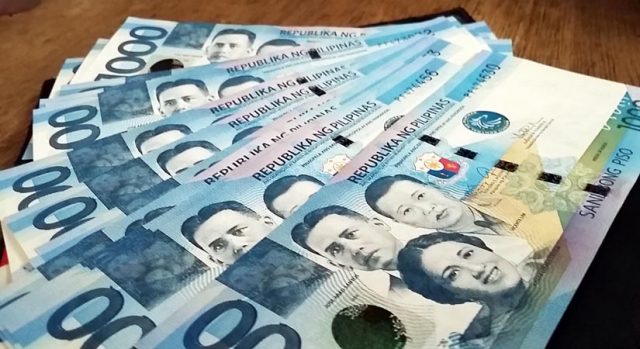BSP eyes testing banknotes made of polymer in 2022

BW FILE PHOTO
Luz Wendy T. Noble
,
Reporter
THE
Bangko
Sentral ng Pilipinas
(BSP) is considering testing P1,000 banknotes made of a “more durable” polymer material next year.
The central bank is also looking at how limited testing circulation of these polymer banknotes could impact the domestic abaca industry as abaca has been used for banknotes since 2001.
“We’re considering testing with a few hundred million pieces of banknotes…If everything goes well, we’re looking at hopefully even by next year to start the test,” BSP Deputy Governor Mamerto E. Tangonan said at an online brie
fi
ng on Monday.
If the plan pushes through, these limited polymer banknotes will coexist with the existing ones.
Mr. Tangonan said they are looking at data from Canada, Australia, New Zealand, United Kingdom, and Mexico to weigh the bene
fi
ts of using polymer for the banknotes and to see if their experiences can be applied in the local context.
“We say limited [banknotes first] because we want to see, to test that under local Philippine conditions these polymer banknotes will perform similarly or close to those experiences in other countries,” he said.
“Because, we can argue that, those countries have conditions that are less challenging than what the Philippine banknotes are exposed to,” he added.
For instance, he noted the Bank of New Zealand saw reduced opportunities for counterfeiting when it used polymer banknotes.
“While the Philippines does not have a major counterfeiting problem, crime syndicates keep improving their techniques in counterfeiting the New Generation Currency banknotes that are in circulation,” the central bank said in a statement on Monday.
The BSP noted polymer banknotes are difficult to counterfeit “due to the complexity of their printed images and the advanced technology used in incorporating security features.”
Mr. Tangonan said the pandemic also prompted the central bank to consider the shift to polymer, after counterparts in the UK and Australia reported that polymer banknotes are less likely to host bacteria and viruses and can also be sanitized without damage.
The BSP also noted polymer banknotes are more durable and can last 2.5 to four times compared with paper money, aside from being water and dirt-resistant.
Given their longer lifespan, the BSP said polymer banknotes have lower environmental impact compared with regularly produced money and a smaller carbon footprint as well. Eventually, more durable banknotes mean lower production costs as well, it added.
“The BOE (Bank of England), for instance, estimated that the printing of the £5 and £10 notes on polymer rather than on paper reduces production costs by 25% amounting to savings of around £100 million over a ten-year period,” the BSP said.
Meanwhile, Mr. Tangonan said they will abide with the principles of other central banks to minimize the design change when transitioning to polymer banknotes to help the public recognize the bills easier.
Mr. Tangonan said the testing of polymer banknotes will determine the next step for other banknotes.
“After successful testing, we have to present to the next set of policy makers to determine…Where do we go [once] we already have the actual data under Philippine local conditions. It’s for the policy makers to make a very well-informed decision on what to do next,” he said.
Meanwhile, the central bank said it is working with concerned agencies including the Department of Agriculture regarding concerns of how such shift could adversely impact local abaca producers.
“Even if we say that the impact is minimal, we are cognizant of it. And we are proactively
fi
nding alternative markets or products for the abaca
fi
ber,” Mr. Tangonan said.
He said they have reached out to various agencies that could switch to abaca paper for documents including the Land Registration Authority for land titles, the Department of Foreign A
ff
airs for passports, and the Philippine Statistics Authority for birth certificates.
The BSP said latest data showed their limited testing could displace around 0.1% or 0.2% of total abaca exports, representing 210 to 481 number of jobs.
“The central bank will continue to support and engage the relevant government agencies and industry representatives to address our shared
concern for the livelihood of abaca farmers,” it said.
